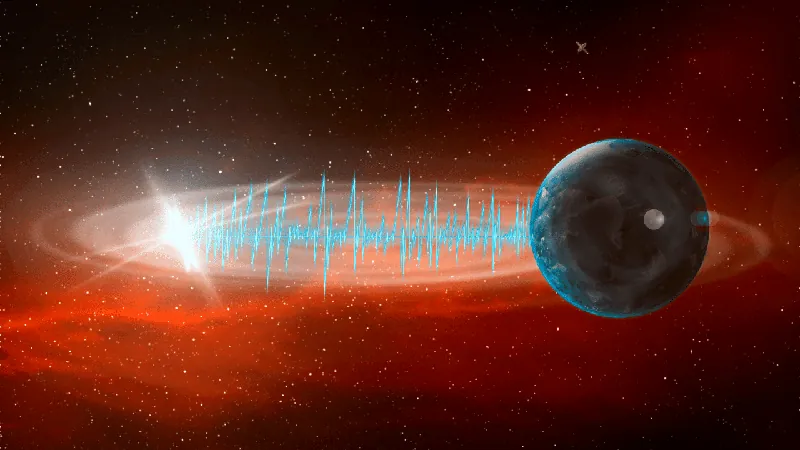
Astrophysics Revolutionized: Scientists Discover Unexpected Source of Radio Signal from Deep Space
2025-01-25
Author: Ken Lee
What Are Fast Radio Bursts?
Fast radio bursts (FRBs) are brief, intense bursts of radio waves that last just milliseconds but release an energy equivalent to what the Sun emits over an entire year. These cosmic fireworks travel vast distances through space, where advanced detection equipment on Earth can capture the signals. Traditionally, most FRBs have been believed to originate from young, active galaxies, adding layers of mystery to their nature.
Discovering the Host Galaxy
The host galaxy of FRB20240209A is located an astonishing 2 billion light-years away. Characterized as quiescent, this galaxy isn’t in the throes of star formation or significant alterations at present, having formed approximately 11.3 billion years ago—shortly after the Big Bang. What sets this galaxy apart is its massive scale, with a mass estimated at 100 billion times that of our Sun. Officially, it holds the title of being the oldest and most massive discovered FRB host so far.
The Significance of This Discovery
Two comprehensive studies published in The Astrophysical Journal Letters delve into the intricacies of FRB20240209A. The surprising birthplace of this fast radio burst raises critical questions about our current astrophysical models and encourages scientists to rethink our understanding of cosmic events.
Paving the Way for Future Space Exploration
The detection and analysis of FRB20240209A represents a pivotal moment in astrophysics. By challenging our preconceived notions about fast radio bursts, this discovery pushes scientists further into uncharted territories of space research. As astronomers continue to attune to this cosmic dialogue, who knows what groundbreaking insights they may uncover about the Universe?


 Brasil (PT)
Brasil (PT)
 Canada (EN)
Canada (EN)
 Chile (ES)
Chile (ES)
 Česko (CS)
Česko (CS)
 대한민국 (KO)
대한민국 (KO)
 España (ES)
España (ES)
 France (FR)
France (FR)
 Hong Kong (EN)
Hong Kong (EN)
 Italia (IT)
Italia (IT)
 日本 (JA)
日本 (JA)
 Magyarország (HU)
Magyarország (HU)
 Norge (NO)
Norge (NO)
 Polska (PL)
Polska (PL)
 Schweiz (DE)
Schweiz (DE)
 Singapore (EN)
Singapore (EN)
 Sverige (SV)
Sverige (SV)
 Suomi (FI)
Suomi (FI)
 Türkiye (TR)
Türkiye (TR)
 الإمارات العربية المتحدة (AR)
الإمارات العربية المتحدة (AR)